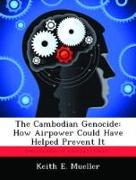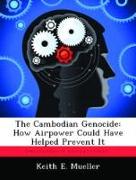- Start
- The Cambodian Genocide: How Airpower Could Have Helped Prevent It
The Cambodian Genocide: How Airpower Could Have Helped Prevent It
Angebote / Angebote:
This paper studies the question of the role of Airpower in the prevention of genocide. Airpower has multiple roles in preventing and stopping genocide, but primarily in a supporting role, whether supporting other military forces or instruments of power. The primary method of determining Airpower's potential roles in genocide prevention was via a case study of the Cambodian genocide that occurred under Pol Pot from 1975 to 1979. This paper first discusses the Cambodian genocide in relation to the Eight Stages of Genocide model. Second, it identifies points at which intervention and prevention is possible in genocide. Finally, this paper discusses the uses of Airpower to support intervention and genocide prevention. This paper determines that Airpower provides the means to deliver quickly humanitarian aid to potential victims of genocide and can move ground forces into theater to prevent or stop genocide. Airpower can support the other instruments of power through surveillance and enforcement of approved sanctions. Airpower, by itself, also provides a credible deterrent to those who might commit genocide. Finally, due to its standoff capability, Airpower is often the means of deterrence and prevention most acceptable to the American public, as it does not place as many American lives in danger as ground operations.
Folgt in ca. 15 Arbeitstagen



